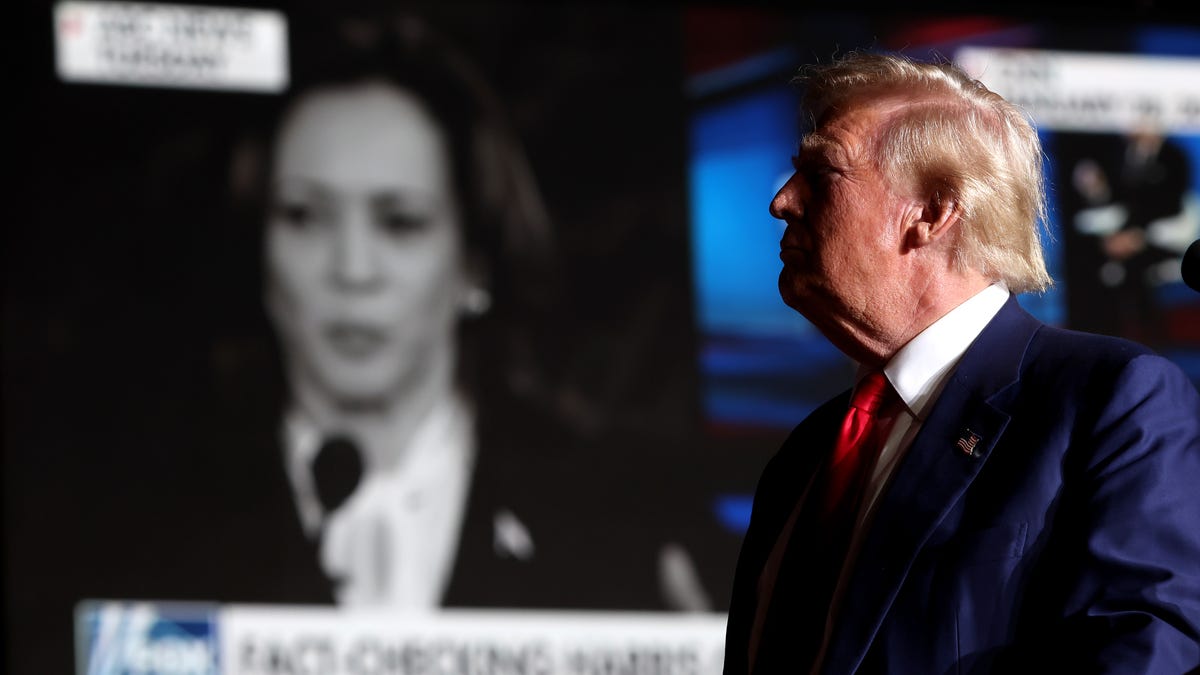Trump has decided against debating Harris again. I’m relieved we won’t have to witness that.
Debates should offer a respectful comparison of candidates’ positions; instead, they have turned into contentious events, largely due to Trump’s departure from political norms.
Last week, Donald Trump announced that he wouldn’t participate in another presidential debate with Vice President Kamala Harris.
Commentators quickly noted that the Trump campaign seemed to be engaging in “damage control” following a lackluster performance in their first debate, while the Harris campaign accused Trump of attempting to avoid another potential loss. Many voters and media outlets seemed eager for a second debate, curious about the chaos that might unfold.
While I previously stated that Trump’s debate performance was subpar, I’m not convinced it will have a significant impact on voters, as many have likely already made their choices.
If you’re planning to vote, there’s a strong possibility that you already know who you’ll support.
Trump’s debate choice likely won’t alter voter opinions
Debates have historically served as platforms for candidates to present their policy differences calmly. Look back at the debates between Obama and Romney, or Gore and Bush, and you’ll notice a stark contrast in the political climate.
In those more civil times, debates could sway undecided voters, as the political landscape was less divisive. Candidates presented tangible policy options for voters to evaluate.
Today, however, debates have turned into fierce confrontations between two candidates who strongly dislike each other, appealing to audiences that don’t see eye-to-eye. This phenomenon is partly due to the nature of these candidates but also reflects a shift in voting behavior, where the aim is to energize base supporters rather than win over undecided voters.
Recent polling from the New York Times and Siena College shows that 5% of likely voters remain undecided, but neither candidate seems motivated to sway them.
Harris claims there is room for these undecided voters in her campaign (yet her actions suggest otherwise). In contrast, Trump has consistently alienated moderates in his party, effectively handing the GOP over to the MAGA movement.
This election is a referendum on Trump, and very few Americans are neutral about the 45th president, which explains why so many voters have yet to choose a side for the upcoming election.
Trump’s choice is disappointing to me on multiple fronts
As an avid debate watcher, I can’t help but feel a sense of relief at not having to endure another one of those chaotic exchanges.
Nonetheless, I’m also disappointed. Debates should be a respectful examination of the candidates’ viewpoints, but they have descended into hostility, a trend fueled by Trump’s disregard for established political norms.
His disruptive approach has altered the political landscape, and just as he avoided debating his Republican primary challengers for fear of a setback, he’s repeating the same behavior in the general election.
The former president is again sidestepping the conventional election process because he struggles with the discomfort of a poor showing.
I anticipate the Vance vs. Walz debate will also be flawed
There’s one more debate on the horizon. Americans will soon have the opportunity to watch their politicians engage in what is expected to be a contentious vice presidential debate scheduled for October 1.
Ohio Senator JD Vance and Minnesota Governor Tim Walz share the belief that their opponents pose a threat to the future of the nation. Such intense perceptions raise doubts about the possibility of a respectful exchange between the candidates.
Trump selected Vance for his ability to channel the MAGA approach to politics. Although Vance has shown some weaknesses as a candidate, he is likely to strive to represent the MAGA ideals during the debate. On the other hand, Walz will likely adopt Vice President Harris’ rhetoric, suggesting that Trump and his supporters endanger democracy. These combative attitudes will not foster civility and will fail to positively impact voters’ choices.
Recent debates show that civility is disappearing from politics
The decline in civil political discourse has significantly contributed to the deep divisions in our society. Civil disagreements have become a rarity; instead, hostility is becoming the norm.
This shift stems from actions taken by both political parties. The GOP’s embrace of Trump’s MAGA agenda has been met with increasing rhetoric from the Democrats.
I can’t help but wish for an improvement in these matters once Trump exits the political scene, but I believe the Democrats may have swung too far to retrace their steps, while the Republican Party has drifted too far from respectful governance for us to return to better times.
The current situation suggests a never-ending escalation of conflict, and it frustrates me that there is no foreseeable resolution. However, at least we might not have to witness it again until after November.
Dace Potas is an opinion columnist for YSL News and holds a degree in political science from DePaul University.

